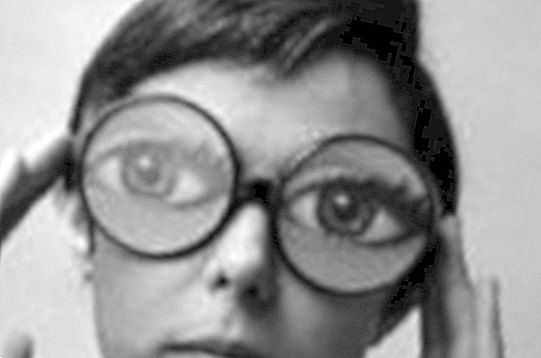Eye vitamins as an agitator

The macula is the part of the retina that we can see the most. If this so-called "yellow spot" is damaged or destroyed, reading, watching TV or driving are no longer possible. At worst we can go blind. This is due, among other things, to breakdown products that arise during vision. Usually they are disposed of by the retinal cells. But with increasing age their capacity decreases. The resulting "garbage dump" dims the view more and more. Doctors talk about age-related macular degeneration (AMD). Already at the age of 50, deposits are often present. Among the 65- to 74-year-olds, 15 percent suffer from an early AMD stage.
To reduce the risk, there is only one thing: to prevent as early as possible, preferably from the age of 40. This is especially important for those whose parents or siblings suffer from the disease. And for people with blue eyes, as more retina penetrates damaging UV light into the eye than dark-eyed people. For all, avoid risk factors as much as possible. So: do not smoke, treat too high blood pressure and especially prevent photodamage of the macula. Therefore always wear sunglasses in the sun, even in winter, and if possible use contact lenses with a UV filter.
Proper nutrition reduces the risk of macular degeneration
Also important is the diet. A Dutch study recently showed that AMD risk decreases by one-third when you drink plenty of zinc, beta-carotene, vitamins C and E. Therefore, whole grains and dairy products, vegetable oils, eggs, nuts, meat and fish should often come on the table.
Distorted images and washed-out colors are warning signs.
A key role obviously plays the plant dye lutein. It combats aggressive free radicals that can damage cells. If little of it is found in the macula, AMD is more likely to occur, as ophthalmologists reported at the last annual meeting of the German Ophthalmological Society (DOG). The experts therefore recommend a preventive urgent diet rich in nutrients with plenty of vegetables and fruits. The vegetable carotenoid is found mainly in dark vegetables such as spinach, broccoli and kale, but also in corn and yellow pepper.
Prevention can also, as some studies have shown, with special vitamin supplements from the pharmacy. In addition to zinc and / or lutein and zeaxanthin, another carotenoid, they contain other antioxidants that are designed to prevent aging. Anyone who wants to take such a dietary supplement should speak with his ophthalmologist.
The use of these "eye vitamins" may even delay the vision loss in an incipient degeneration of the retina? provided it is the "dry" variant of this disease and not the worse form of "wet macular degeneration". The "dry" progresses only very slowly. Luckily! Unfortunately, effective treatment options have not been available so far. Since the vitamins are worth a try.
Medications for age-related macular degeneration are expensive
As paradoxical as it sounds: there are better treatment options in the severe cases, the rarer "wet macular degeneration". In her vision decreases rapidly, because in the retina not only deposit metabolic waste, but proliferate abnormally altered blood vessels, from which liquid escapes. For example, can these doctors proliferate the laser by laser? but this does not prevent the formation of other vessels. However, new medications that are injected directly into the inside of the eye are now able to do this: so-called VEGF inhibitors. They block the growth factor VEGF, which causes the blood vessels to grow.
Two drugs containing pegabtanib and ranibizumab have recently been approved for use on the eye. However, both are extremely expensive (830 and 1500 euros per syringe, which is due every four to six weeks). If the fund does not pay this treatment, there is, according to professional association of ophthalmologists, a third, much cheaper drug with the drug bevacizumab. For around 40 euros per syringe, according to many experts, it is as good as the other two. The catch here: It is not officially approved for the treatment of macular degeneration. Ophthalmologists may still use it at their own risk.
More information on age-related macular degeneration
- www.pro-retina.de
- AMD hotline (personal advice every Wednesday 14-16 clock): 0800 011 21 18 (6 cents per call)










